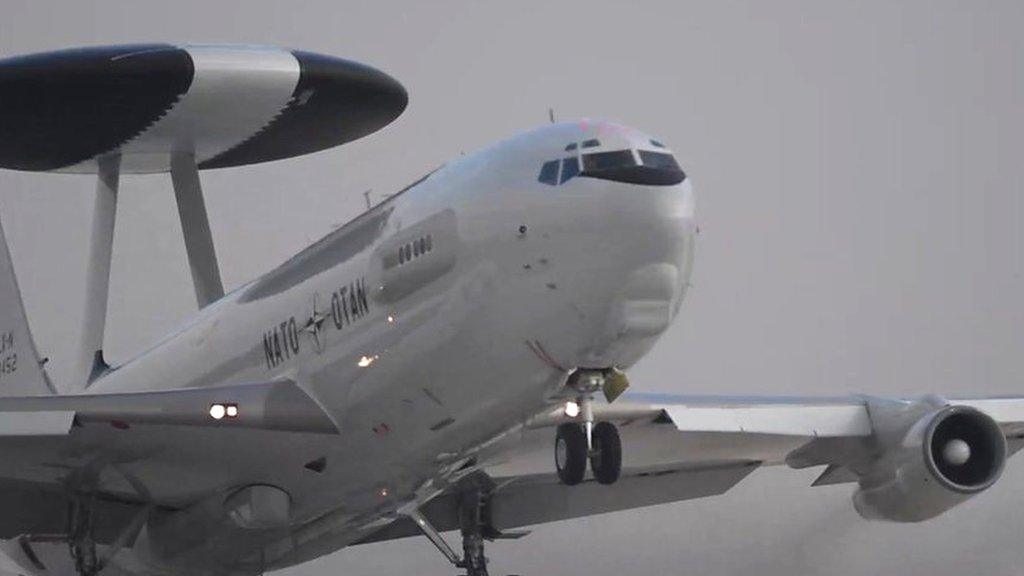US withdrawal from Syria leaves Kurds backed into a corner
- Published
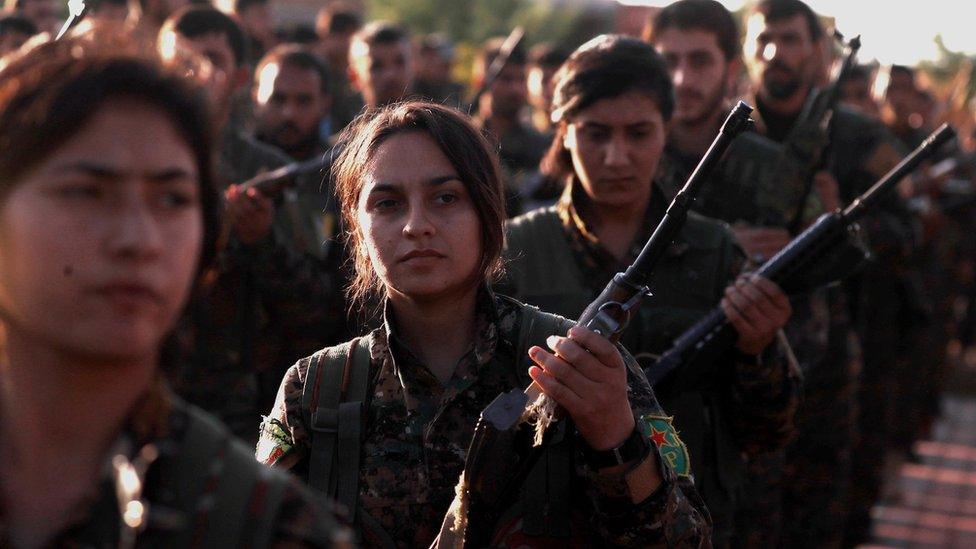
The Kurdish-led Syrian Democratic Forces alliance controls 30% of Syria
Donald Trump's decision to put an end to the US military operation against the Islamic State (IS) group in Syria has left many observers wondering what might happen to Washington's main partners on the ground, the Kurds, and whether their enemy Turkey offered the president anything in return.
Mr Trump's announcement on Wednesday that the 2,000 US troops deployed largely in north-eastern Syria would begin withdrawing immediately was a gift to Turkey, and also to Syrian President Bashar al-Assad.
By supporting the alliance of Kurdish and Arab militias known as the Syrian Democratic Forces (SDF), Washington gained indirect control of half of Syria's strategic resources - including many oil fields and dams, and much of its most fertile agricultural land - and leverage in discussions with Mr Assad and his allies Russia and Iran on the country's future.
Now the SDF is backed into a corner and the Kurdish militia that dominates the alliance, the People's Protection Units (YPG), faces two probable scenarios.


Ankara says the YPG is an extension of the Kurdistan Workers' Party (PKK), which is banned in Turkey and has fought for Kurdish autonomy there since 1984, and considers it a terrorist organisation.
Turkey's President Recep Tayyip Erdogan declared last week that the Turkish military was gearing up for a ground incursion into SDF-controlled territory east of the River Euphrates.
The Pentagon responded by warning that such unilateral action would be "unacceptable".
But on Monday Mr Erdogan said he had discussed his plan with Mr Trump by telephone and that he had given a "positive response".
When the Turkish military and allied Syrian rebel fighters launched a ground offensive to capture the majority Kurdish Afrin region almost a year ago, the YPG fought for two months before deciding to withdraw to the safety of areas where US troops were based.
This time the Syrian Kurds have nowhere else to go.
The SDF controls 30% of Syria and has more than 60,000 fighters under its command, but without the threat of the US intervening Mr Erdogan would be confident that Turkish troops could drive them back away from the border.
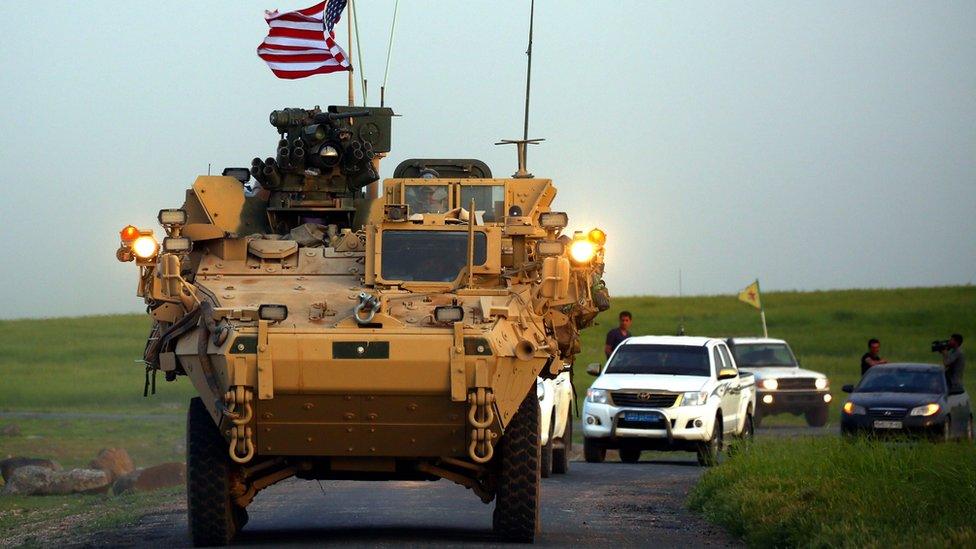
The US presence in north-eastern Syria has stopped Turkey attacking Kurdish fighters
The Turkish military's air power would give it a huge advantage in any battle with the Kurds, as was seen in Afrin. It would also have at its disposal at least 15,000 Syrian rebels stationed west of the Euphrates in Afrin and other border towns.
Mr Erdogan might also believe that Arab militias in the SDF could be persuaded not to get involved in a Turkish-Kurdish conflict and to abandon the alliance.
The second scenario would see the SDF try to cut a deal with the Syrian government.
Mr Assad, whose forces lack the military power to capture the SDF's territory by themselves, might in the end decide that the Kurdish-led alliance poses less of a threat than a long-term Turkish presence in northern Syria.
The SDF has always been open to negotiating with the Syrian government. Representatives met officials in Damascus at least twice earlier this year, although the talks did not lead to any significant openings.
A change in the government's attitude is only likely to happen amid a breakdown in relations between Russia, Iran and Turkey, who have been working together to stabilise Syria and find a political solution to the country's civil war.
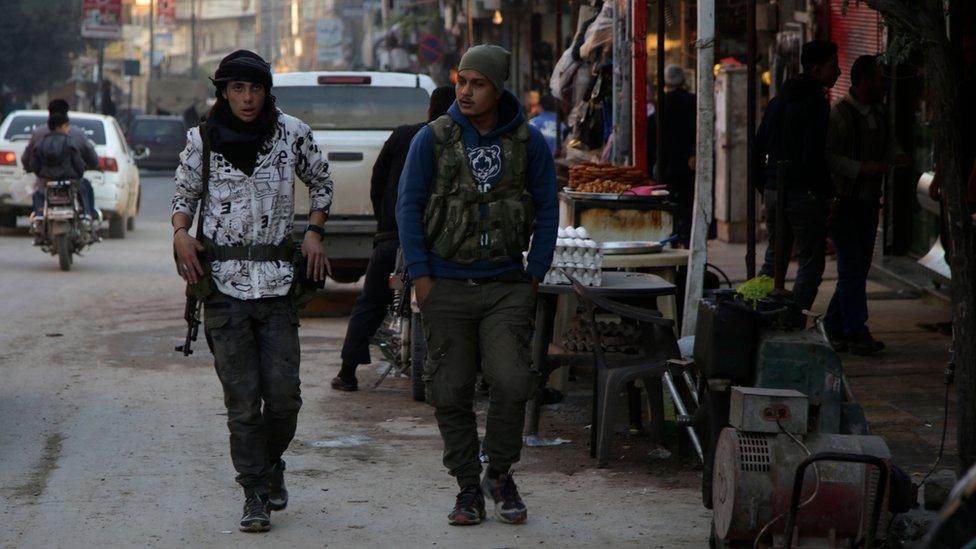
Turkish-backed Syrian rebels captured the Kurdish-majority city of Afrin earlier this year
The US withdrawal from Syria might weaken Russian and Iranian willingness to go along with Turkey's plans. Moscow's anti-Kurdish and pro-Turkish stance largely stems from the attempts to deprive the US of local allies and to drive a wedge between the Nato powers.
US support for the SDF made the Kurds and their allies into one of the major forces in Syria. However, it also left them with powerful enemies.
It was the Washington's announcement in December 2017 that it would help the SDF develop a 30,000-strong "border force" in eastern Syria that led to Russia allowing the Turkish military to attack Afrin.
More recently, repeated statements from the Trump administration that the US had decided to stay in Syria until Iranian forces left prompted Russian Foreign Minister Sergei Lavrov to level accusations of separatism against the Kurds and their allies.
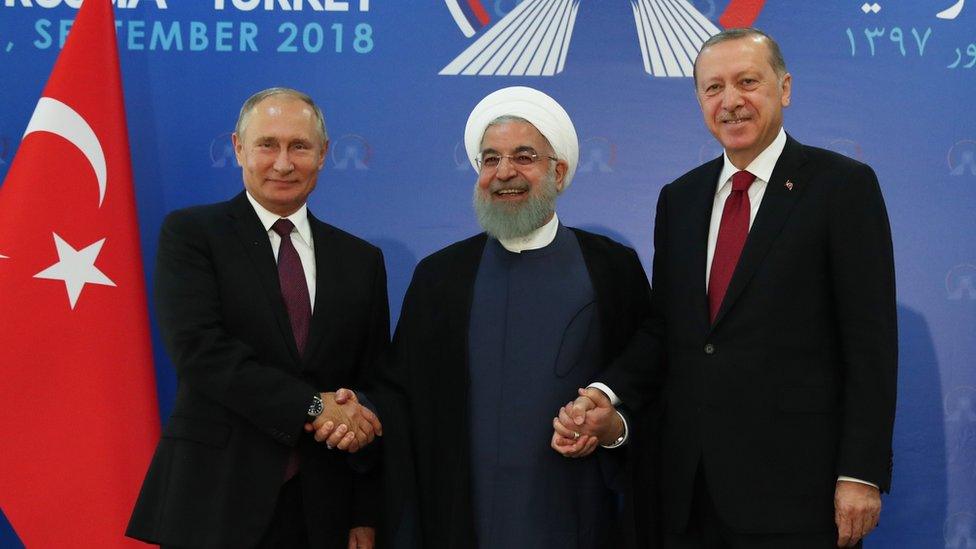
Russia, Iran and Turkey have been co-operating in an effort to stabilise Syria
If the US is out of the picture, Moscow might no longer feel that it needs to hold back on efforts to curb Kurdish influence in eastern Syria.
The question of whether Turkey might have offered something in return for the US withdrawal would be relevant to Russia's future position as well.
The state department's decision to approve selling the Patriot missile defence system to Turkey, which came on the same day as the withdrawal announcement, suggests that there might have been some co-ordination between Washington and Ankara.
However, it is unlikely that Mr Erdogan would cut off all relations with Russia and also come on board with Mr Trump's anti-Iran policies any time soon.
- Published19 December 2018
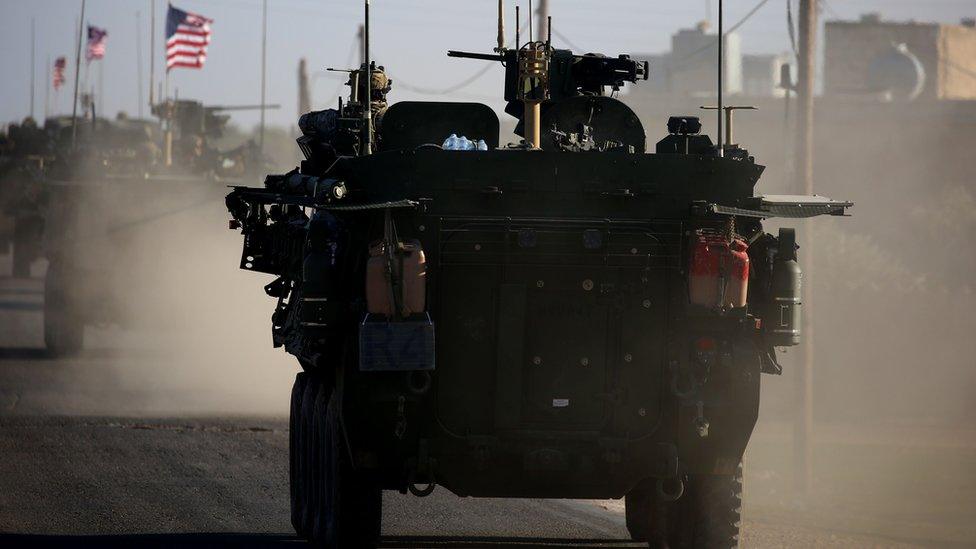
- Published23 March 2019
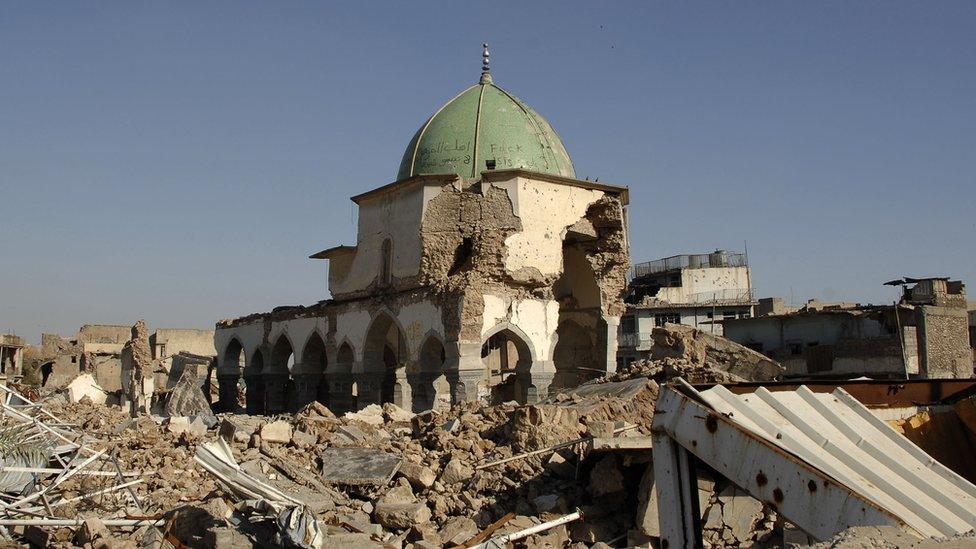
- Published4 April 2018
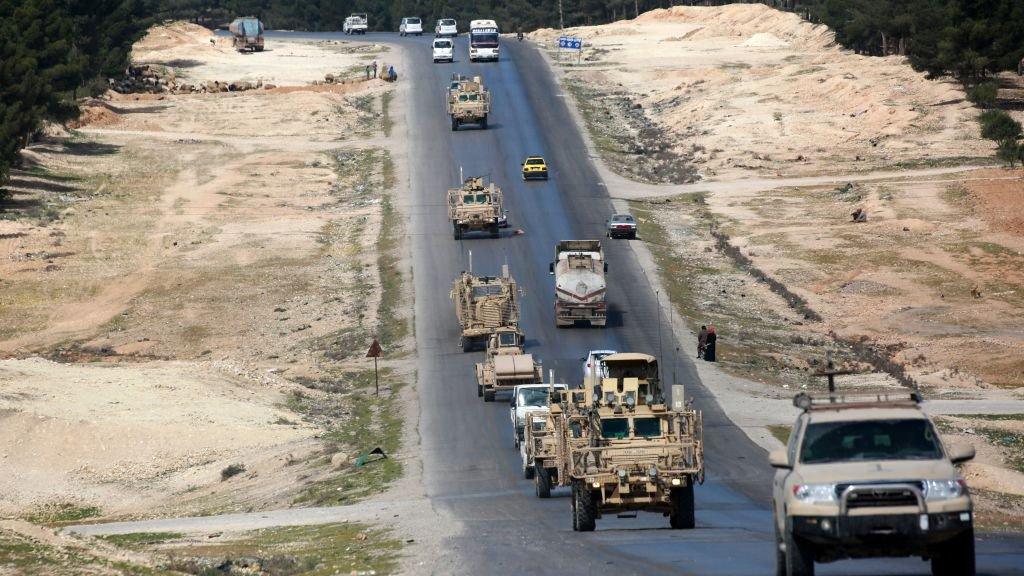
- Published18 December 2018
